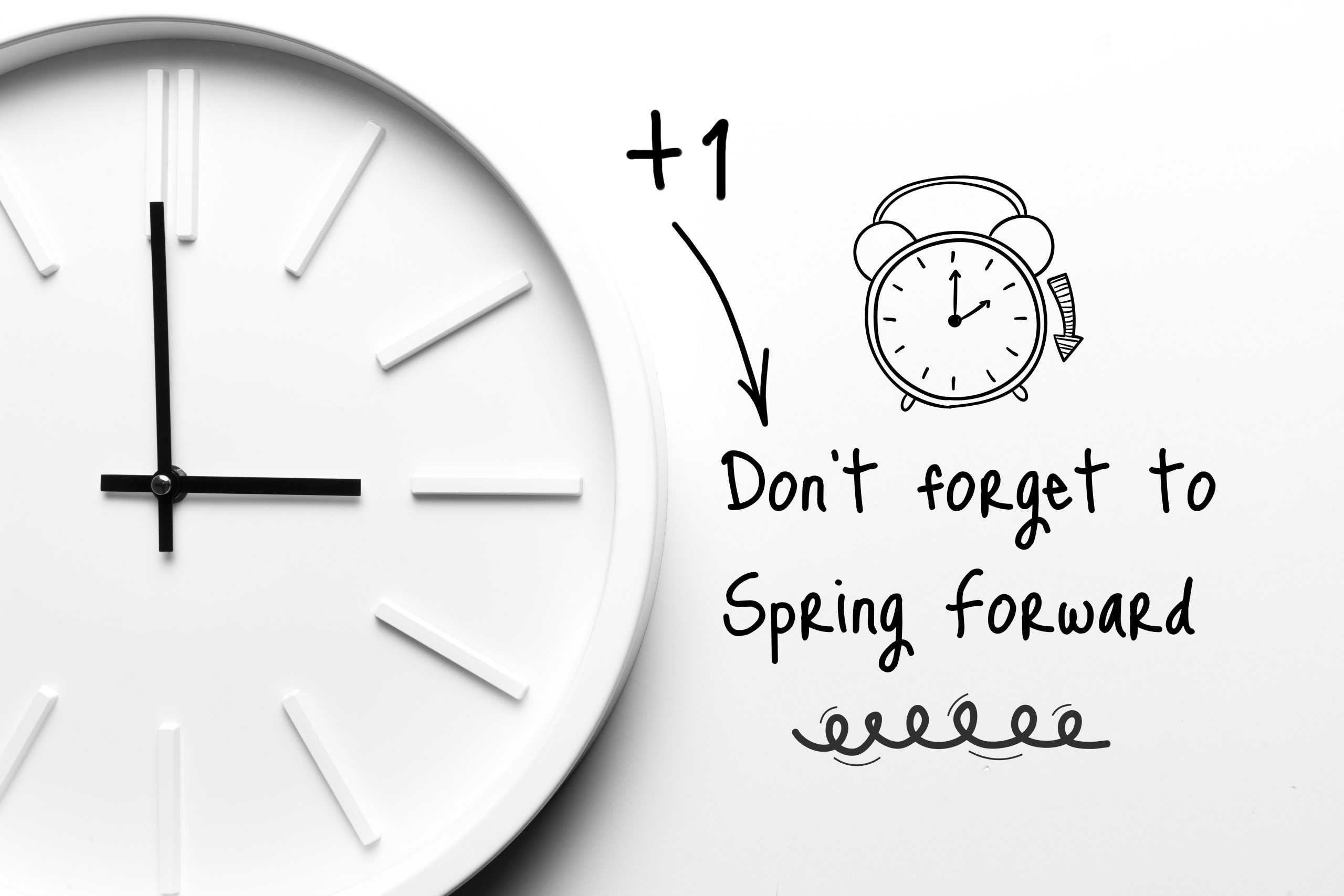on
BY SIMONE J. SMITH
You don’t know why, but on Sunday March 10th, 2024, you feel like you barely slept at all last night. You kept tossing and turning. That’s strange. Then you remember, you lost an hour of sleep last night.
On Monday, you can’t focus at all. You feel like you are going to fall asleep at your desk. You can barely keep your eyes open at work. You don’t get it. Why do you feel so tired? You think it’s because your body is still adjusting to the time change.
Even though we technically moved the clock forward, our internal clocks are still trying to catch up. It’s like trying to trick our bodies into thinking it’s a different time than it really is, and it can take days, or even weeks to fully adjust.
Wow! You never realized there could be negative side effects to skipping time forward.
About one-third of Americans say they don’t look forward to these twice-yearly time changes, and nearly two-thirds would like to eliminate them completely, compared with 17% who aren’t sure, and 21% who would like to keep moving their clocks back and forth.
The effects go beyond simple inconveniences that were mentioned in the introduction of this article. Researchers are discovering that “springing ahead” each March is connected with serious negative health effects, including an uptick in heart attacks and teen sleep deprivation. In contrast, the fall transition back to standard time is not associated with these health effects.
When the idea of daylight-saving time was contrived, it was thought that having extra light later into the afternoon would save energy by decreasing the need for electric lighting. This idea has since been proved largely inaccurate, as heating needs may increase in the morning in the winter, while air conditioning needs can also increase in the late afternoon in the summer.
Beth Ann Malow (Professor of Neurology and Pediatrics, Vanderbilt University) studied the pros and cons of these twice-annual rituals for more than five years. Her research has focused on the impact of treating sleep disorders on neurological disease, and in autism. She shares, “It’s become clear to me and many of my colleagues that the transition to daylight saving time each spring affects health immediately after the clock change and also for the nearly eight months that Americans remain on daylight saving time.
The two time shifts — jolting as they may be — are not equal. Standard time most closely approximates natural light, with the sun directly overhead at or near noon. In contrast, during daylight saving time from March until November, the clock change causes natural light to be present one hour later in the morning and one hour later in the evening according to clock time. Morning light is essential for helping to set the body’s natural rhythms: It wakes us up and improves alertness. Morning light also boosts mood — light boxes simulating natural light are prescribed for morning use to treat seasonal affective disorder.”
The body of evidence makes a good case for adopting permanent standard time. The American Medical Association recently called for permanent standard time, and in late 2022, Mexico adopted permanent standard time, citing benefits to health, productivity and energy savings.
So, what do you think? Should we lose this idea of springing forward?
REFERENCES:
Mexico’s Senate votes to end daylight saving time for most of the country
https://www.timeanddate.com/news/time/mexico-abolishes-dst-2022.html#
https://www.ama-assn.org/press-center/press-releases/ama-calls-permanent-standard-time
https://doi.org/10.1001/archpsyc.55.10.890
https://doi.org/10.1038/s41598-018-36791-5
https://scholar.google.com/citations?user=ZddlKEoAAAAJ&hl=en
https://doi.org/10.1016/j.jebo.2014.03.012
https://doi.org/10.5664/jcsm.4938
https://doi.org/10.3390/jcm8030404
https://docs.cdn.yougov.com/etwjvohrxx/Daylight_Saving_Time_Toplines_Crosstabs.pdf
Stay in the loop with exclusive news, stories, and insights—delivered straight to your inbox. No fluff, just real content that matters. Sign up today!
We, as humans are guaranteed certain things in life: stressors, taxes, bills and death are the first thoughts that pop to mind. It is not uncommon that many people find a hard time dealing with these daily life stressors, and at times will find themselves losing control over their lives. Simone Jennifer Smith’s great passion is using the gifts that have been given to her, to help educate her clients on how to live meaningful lives. The Hear to Help Team consists of powerfully motivated individuals, who like Simone, see that there is a need in this world; a need for real connection. As the founder and Director of Hear 2 Help, Simone leads a team that goes out into the community day to day, servicing families with their educational, legal and mental health needs.Her dedication shows in her Toronto Caribbean newspaper articles, and in her role as a host on the TCN TV Network.













